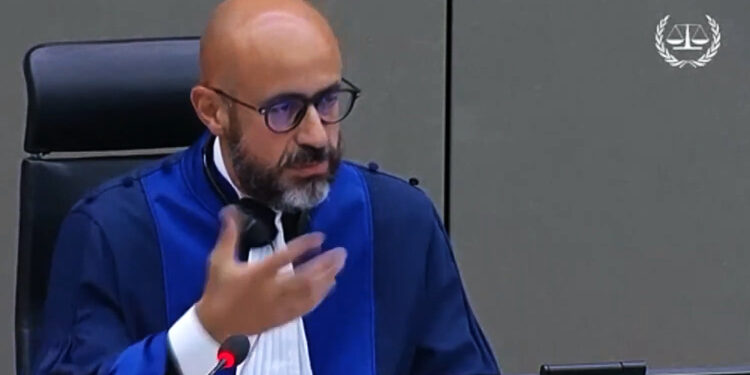International Criminal Court Prosecutor Karim Khan has been given three days to clarify some of the statements he made before the United Nations Security Council on January 17, 2022 concerning the situation in Darfur, Sudan.
Pre-Trial Chamber II’s Judge Rosario Salvatore Aitala (presiding), Judge Antoine Kesia‐Mbe Mindua, and Judge Tomoko Akane said they had noted with “serious concern” the Prosecutor’s statement as well as the Thirty-fourth Report of the Prosecutor of the International Criminal Court to the United Nations Security Council (UNSC).
“The Prosecutor stated that he started ‘conducting a review of the evidence to look at the strength’ of the cases in the Sudan situation; that he ‘realised that the evidence particularly against Mr Al-Bashir and Mr Hussein needs strengthening’ and that, accordingly to those two cases, ‘we need to make sure we do better’,” the judges said, adding that Khan had made similar statements in his report to the UNSC.
In their order dated January 24, 2021, they directed Khan to clarify the background, meaning, and implications of his statements, “by way of filing submissions in the record”, by January 27.
The judges cited Article 57(3)(a) of the Statute, saying the Pre-Trial Chamber has the power to issue a requested warrant of arrest if it is satisfied that the requirements enumerated in Article 58(1) are fulfilled. They said that pursuant to Article 58(4), the warrant “shall remain in effect until otherwise ordered by the court”.
According to Article 58 of the Rome Statute, at any time after the initiation of an investigation, the Pre-Trial Chamber shall, on the application of the Prosecutor, issue a warrant of arrest of a person if satisfied after examining the application and the evidence or other information submitted by the Prosecutor.
“The Pre-Trial Chamber also remains responsible inter alia for ensuring that, ‘if the warrant of arrest has not been executed within a reasonable period of time after the issuance of the warrant, […] all reasonable measures have been taken to locate and arrest the person’ under rule 123(3) of the Rules of Procedure and Evidence,” the judges said.
Outlining the background, the judges said on March 31, 2005, the UNSC referred the situation in Darfur to the ICC, which is investigating allegations of genocide, war crimes, and crimes against humanity committed since 2002 by Sudanese officials, Janjaweed militia, and rebel forces. Consequently, the court in April 2007 issued the first warrants of arrest. The case eventually included six people, among them then president Omar Al Bashir, in what has become known as the Sudan situation.
The other five were Ali Muhammad Ali Abd-Al-Rahman (the only one in the group whose case has proceeded to trial stage), Ahmad Harun, Abdel Raheem Muhammad Hussein, Muhammad Hussein Abdallah Banda Abakaer Nourain (Abdallah Banda), and Bahar Idriss Abu Garda.
While Harun, Nourain, and Hussein are still at large, the Pre-Trial Chamber declined to confirm the charges against Garda and the case is considered closed until or unless the Prosecutor presents new evidence.
“The chamber notes the warrants of arrest against Harun, Bashir, Hussein, and Banda have remained unexecuted over the years, with several arrest warrants issued in April 2007, March 2009, March 2012, and September 2014 respectively,” the judges said.







